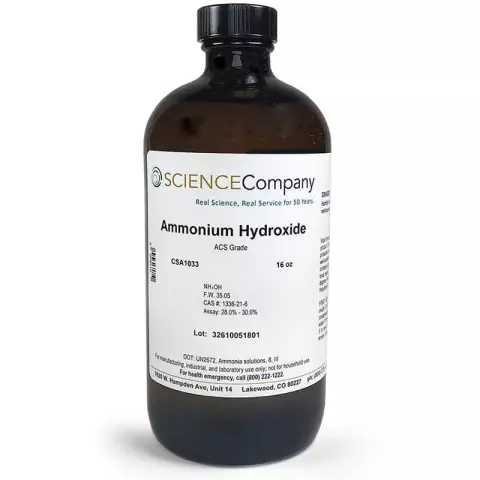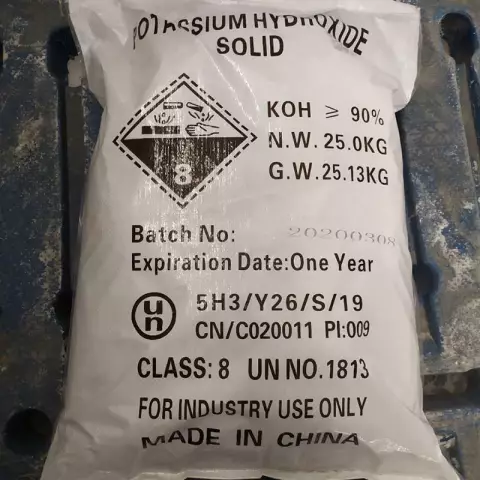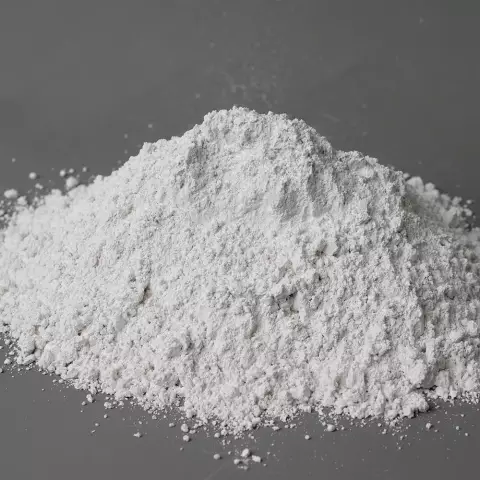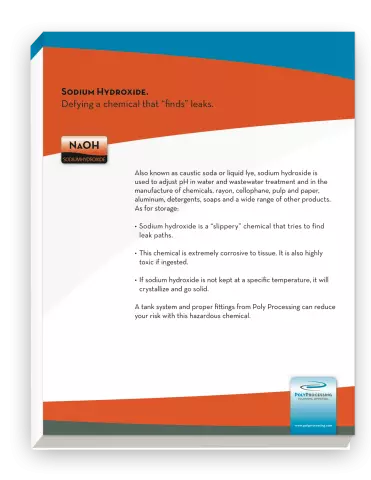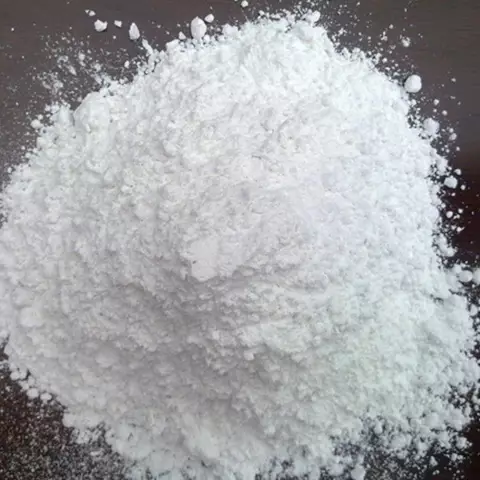- Author Rachel Wainwright wainwright@abchealthonline.com.
- Public 2023-12-15 07:39.
- Last modified 2025-11-02 20:14.
Ammonium hydroxide

Ammonium hydroxide is known as a food additive from the group of emulsifiers. Due to its chemical properties, ammonium hydroxide is mainly used as an acidity regulator.
Getting ammonium hydroxide
Ammonium hydroxide is an aqueous solution of ammonia. The solution is transparent, with a pungent and pungent odor. In an industrial way and in large quantities, the production of ammonium hydroxide is possible by dissolving the products of coal combustion in water.
Application of ammonium hydroxide
As a food additive, ammonium hydroxide has the designation E527 and is allowed on the territory of Russia and Ukraine. It is added to caramel candies, cocoa products and some types of chocolate. In these products, ammonium hydroxide maintains the acidity required for the recipe by acting as a buffer. The fact is that cocoa beans contain up to 2% acids in their composition, which are neutralized when ammonium hydroxide is added to the product.
In addition to the food industry, ammonium hydroxide solutions are widely used in medicine and in household use. A 10% solution of this substance is better known as ammonia or ammonia water. When inhaled, it stimulates the respiratory center, which is used for loss of consciousness, fainting and when it is necessary to induce vomiting. Outwardly, due to its antiseptic and cooling properties, ammonium hydroxide is suitable for treating hands, scratches and abrasions, insect bites.

In addition, ammonium hydroxide is used in the production of soda and detergents, paints, fertilizers.
The harm of ammonium hydroxide
Ammonium hydroxide is added to food products according to technological instructions and recommendations, often in combination with other hydroxides. The content of this substance in chocolate and cocoa should not exceed 70 g / kg of dry matter.
In a number of countries (New Zealand, Australia, some European countries), ammonium hydroxide is prohibited as a food additive. There is evidence that this substance can adversely affect human health, causing toxic damage to the liver and intestines.
The harm of ammonium hydroxide is that this rather unstable substance easily converts to ammonia and water. Ammonia irritates the mucous membrane of the digestive tract. Clear norms of daily consumption of ammonium hydroxide have not been developed.
Found a mistake in the text? Select it and press Ctrl + Enter.

